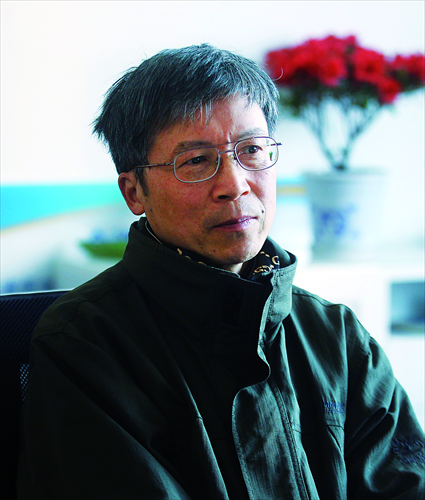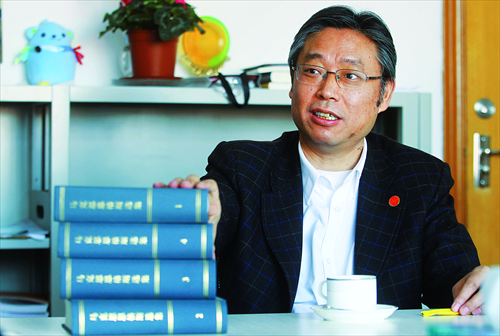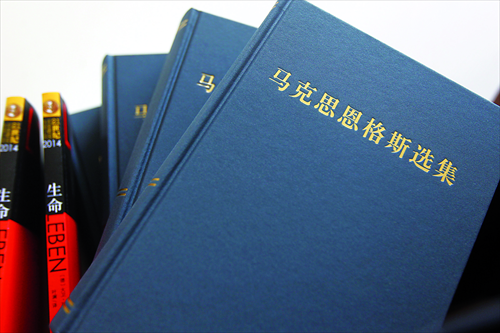Goethe expectations
Shanghai International Studies University to translate works of famed German writer
A specialist team at Shanghai International Studies University (SISU) will translate the complete works of German writer Johann Wolfgan von Goethe into Chinese.
All of Goethe's novels, poetry, dramas, memoirs, autobiography, letters, diaries, treatises and literary and aesthetic criticism will be translated into 40 to 50 books containing around 30 million Chinese characters.
It will be the first time Goethe's complete works have been translated into Chinese by one group of experts. The translations will be accompanied with research annotation, according to Wei Maoping, dean of SISU's School of Germanic Studies and the program's director.

Wei Maoping
The earliest Chinese translations of Goethe works, such as Faust and The Sorrows of Young Werther, were by Guo Moruo, an influential Chinese author, poet and historian. Early in the 1920s, Guo proposed that the complete works of Goethe be translated into Chinese. But it took a long time for the resources and talents required to embark on this project.
"It has been a dream for generations. Now, it is the work of our generation," Jiang Feng, SISU's Chair of the University Council, told the Global Times.

Jiang Feng
Great progress
"Taking Goethe's letters as an example, we have only translated 10 percent. We knew little about Goethe. Before, Goethe research was mainly done by Chinese literature scholars who studied foreign literature.
"Their research was based on the translated works of Goethe. This time, we will translate the original works of Goethe into Chinese, and in doing so research his works directly," said Wei.
The project's first translations are slated for a 2019 release.
As the largest translation project launched by Chinese academia since 1949, it has received a grant of 800,000 yuan ($127,851) from the national social science fund.
This project has also linked with experts from different academic institutions.
Over 80 scholars in Germanic studies from Shanghai International Studies University, Peking University, Fudan University, Tongji University, Beijing Foreign Studies University, the Chinese Academy of Sciences, and the Chinese Academy of Social Sciences will work together on this project.
"Before, social science studies were mainly done by individual scholars. But this time, we are carrying out the research in an organized way," said Jiang.
Germanic works
Wei said that German literature tends to be more complex when it comes to unpacking it for the purposes of translation when compared to English-language literature.
However, he said that, while the circulation of German literature is less than English-language literature, German works in humanities, philosophy and social sciences have been more influential in China.
Goethe was not only a writer, but also a statesman and researcher. His observations on nature and his political thoughts will also be translated under the project.
Many other German classics have been translated into Chinese.
Shanghai International Studies University translated a great number of German works, such as those of Karl Marx and Friedrich Von Engels.
The novel Leben (pictured below) by German writer David Wagner was translated into Chinese by Ye Lan from Tongji University, winning the Zou Taofen Annual Foreign Literature Prize in 2014.

Photos: Yang Hui/GT
German is a very rigorous language, and many German words lack direct translations in English and French, said Wei, with the same challenge being present when translating into Chinese.
"We do not just translate. We explain, interpret and narrate the world. Translating is not merely the process of changing one language into another, but of exchanging between different cultures and civilization," Jiang said.